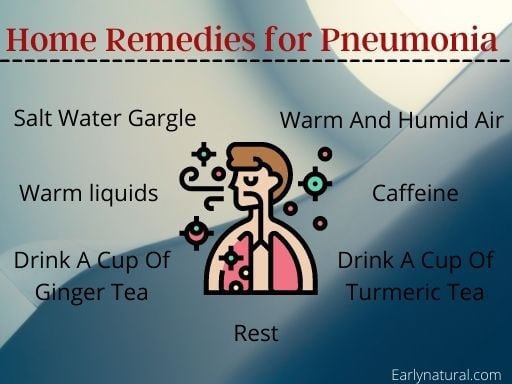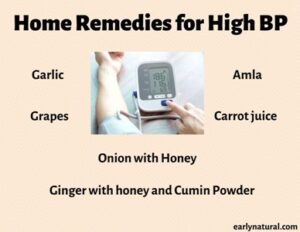What Is Pneumonia
Pneumonia is a mild to severe lung infection and you must go to the hospital for treatment. This happens when an infection causes the air sacs in the lungs to fill up with fluid or pus. This can make it difficult for you to breathe enough oxygen to reach the blood. Anyone can contract this lung disease. You can use home remedies for pneumonia.
But infants under 2 and people over 65 are at higher risk. That’s because their immune system may not be strong enough to resist it. The causes include bacteria, viruses and fungi. If your pneumonia is caused by bacteria or viruses, you can spread it to other people. Lifestyle habits, such as smoking and drinking too much alcohol, can also increase the chance of developing pneumonia.
Causes & Symptoms Of Pneumonia
- Chest pain when breathing or coughing
- Coughing produces phlegm or mucus
- Fatigue and loss of appetite
- Fever, sweating and chills
- Nausea, vomiting and diarrhoea
- Shortness of breath
People with pneumonia should rest and drink plenty of water. Pneumonia can be caused by various reasons When a person’s immune system is healthy, their body can usually prevent serious infections. However, if bacteria, fungi or viruses overwhelm the immune system, it can cause more serious diseases.
Home Remedies for Pneumonia

Depending on the cause of pneumonia, the doctor will prescribe drugs to treat the infection. During the recovery period, they will recommend:
- Get enough rest ·
- Eat nutritious food ·
- Drink plenty of liquids
In addition, some home remedies may help a person control symptoms and promote recovery. So, the home remedies are :
Salt Water Gargle
Mucus can cause more coughing and irritation in the throat. A warm salt water gargle may help eliminate mucus or bacteria in the throat, which may be relieved.
Caffeine
Drinking a small amount of caffeine, such as a cup of coffee or black or green tea, may help open the airways in the lungs. This can help a person breathe more easily.
Warm And Humid Air
Inhaling warm and humid air may breathe and make the throat not tight. Breathing steam or drinking a cup of warm tea in the shower may help.
Rest
Rest is essential for the repair of cells in the body, but it may be especially beneficial for shortness of breath. Pneumonia patients can benefit by minimizing physical exertion.
Warm liquids
Drinking hot liquids can help the body heat up and prevent chills. Like :·
- Warm water
- Herbal tea
- A bowl of soup
Some foods contain compounds that may help strengthen the immune system, fight bacteria and control inflammation. These may help reduce the symptoms of pneumonia more generally. Many household products contain compounds that may help promote the healing process. Examples :
- Garlic
- Raw Honey
- Chili Tea
- Tree Oil Echinacea
Drink A Cup Of Turmeric Tea
Turmeric has anti-inflammatory properties from a trusted source and can help relieve pain. Although existing research involves other forms of pain, it is thought that its effects may extend to chest pain. Turmeric also has antioxidant and antibacterial properties.
Drink A Cup Of Ginger Tea
Ginger has anti-inflammatory and analgesic effects, making it useful for pain relief. Like turmeric, current research on ginger does not consider its effect on chest pain, but it is believed that its analgesic effect is applicable here.
Preventing Pneumonia By Naturally
Preventing pneumonia is not always possible, but some lifestyle choices can reduce the risk of pneumonia. These include: ·
- Adopt a varied and healthy diet
- Exercise regularly
- No smoking
- Avoid air pollution as much as possible ·
- Control stress levels and get enough sleep ·
- Wash your hands regularly it leads to less risk of infection.
- Follow any instructions recommended by your doctor to stay healthy
For COVID-19, experts recommend keeping a distance from others to prevent the spread of the virus. Healthy living habits can help the body fight infections, including infections that cause pneumonia.
How is Pneumonia Treated
If you have lung cancer and develop pneumonia, your treatment will be the same as for someone with pneumonia without lung cancer. In most cases of viral pneumonia, treatment will focus on supportive care, such as supplemental oxygen, intravenous fluids, and rest.
The antibiotics you can take at home include
- Azithromycin
- Levofloxacin
- Cefpodoxime
- Doxycycline
Treatment at Home :
- Rest
- Drink plenty of fluids( Juices, etc.)
- Eat a healthy, balanced diet
- Follow your doctor’s instructions, including taking all antibiotics, even after you start to feel better
- Hospital treatment
Conclusion :
Pneumonia can be life-threatening and usually requires treatment. Many people will need to spend time in the hospital, and it may take months to fully recover. During the recovery period, some home care may help a person feel better and encourage their physical recovery.



